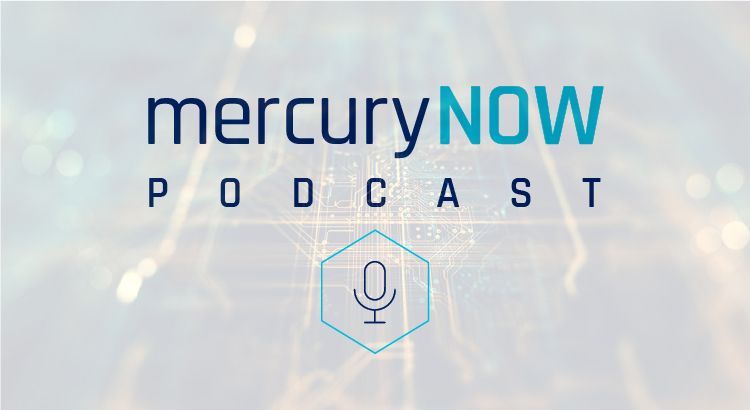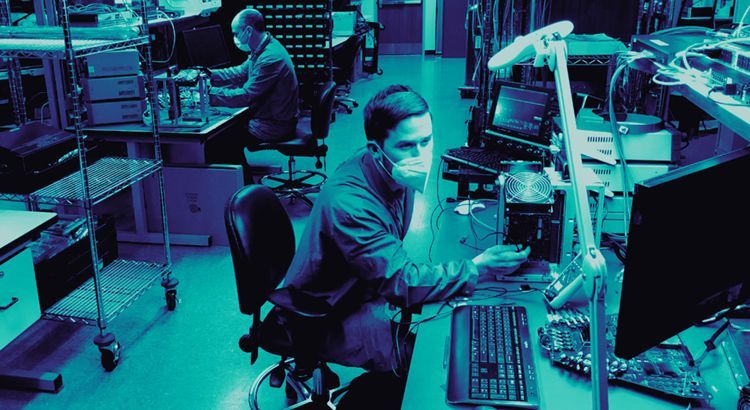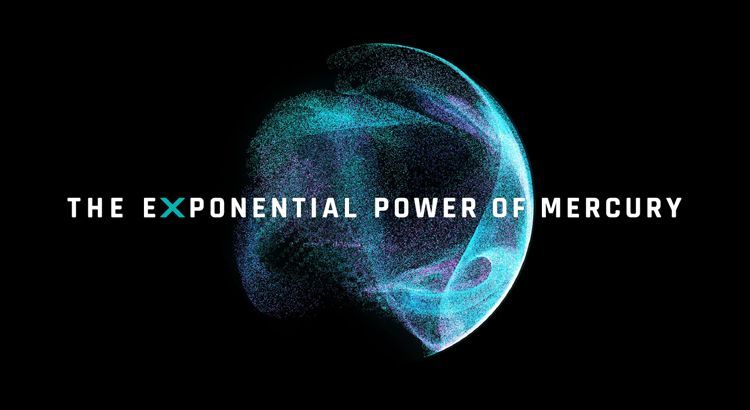
Talent Attraction in a Digital World
Mercury Systems
May 6, 2020
With continued growth and a demand for people who want to answer “why” they do their jobs instead of “what” their job is, Jamie Durkin, head of Talent Attraction at Mercury Systems, joins the MercuryNOW podcast. Listen as he discusses a broad range of topics including the synergy between talent attraction and growth, adjusting to hiring challenges due to Covid-19, creating a successful pre-boarding process, hiring from virtual interviews, and partnering with marketing to build digital awareness for a brand that relates to more people.
Read the transcript
Ralph Guevarez:
Hello and welcome to Mercury Now, a podcast series brought to you by Mercury Systems. I am your host Ralph Guevarez and today's topic, Talent Attraction in a Digital World. As Mercury continues to build its portfolio of talented and driven team members, joining me is Jamie Durkin, Director of Talent Attraction for Mercury Systems. Jamie, hello and thank you for joining me.
Jamie Durkin:
Hello, Ralph. Thank you for having me.
Ralph Guevarez:
Jamie, before we discuss the digital recruitment campaign, can you give our listeners a brief background on your current role at Mercury?
Jamie Durkin:
Absolutely and welcome, listeners. My name is Jamie Durkin and I'm the Head of Talent Attraction for Mercury Systems. I have been here for about two years and currently I work for Tim Aleck, who's the Global Head of Talent.
Ralph Guevarez:
Great. Let me paint a picture for our listeners who may be considering joining the Mercury team and I quote, "If you want to tell people why you do what you do, rather than simply what you do, Mercury's calling. We're a leader in making trusted, secure mission-critical solutions profoundly more accessible to aerospace and defense. We bridge the gap between commercial technology and defense applications to address the industry's most pressing high-tech needs. Why? To create a safer, more secure world." That is pretty powerful. Can you please comment on the thought leadership behind that statement?
Jamie Durkin:
Absolutely, Ralph. When I look at that statement there's a word that really strikes out at me and that word is why. The why is an powerful statement. It's a powerful word because it is at the very foundation of what we're doing as an organization, where we're bridging the gap between commercial technology and defense applications. Why? To get to market faster. To become more safer, more secure world faster. And we've really been able to not only have a mission statement like that, but really deliver on, on a regular basis.
Ralph Guevarez:
As a new member of the Mercury team myself and having adopted their culture and values only after a few months with the company, it's an exciting time to come aboard. Tell us about some of the synergies in place with talent acquisition these days.
Jamie Durkin:
You know the name of the game for us is really growth. We've had 11 acquisitions. Revenue growth has gone up more than 2X. The stock price since I've been here has more than doubled. We're a company that's really hovered around 500 people for the better half of 15 years. We're now at 1,800 people and we're not slowing down. So when we look at the synergies between talent attraction and the company as a whole, they're one and the same.
Ralph Guevarez:
How is the talent attraction organization coping with all this through unprecedented times with COVID-19?
Jamie Durkin:
So lucky for us, Ralph, we've always been agile in our approach to talent attraction. Between our passive recruiting, our proactive campaigns to high-value targets, we've always had the approach of we have to be hunters if we want to get the best talent in the door. With that effort, we've done a lot of diligence around partnering with our hiring managers, partnering with our hiring managers in transitioning them from traditional thought processes of going through a resume line by line, asking them basic questions, to converting the conversation to make a real impact. That real impact is around behavioral interviewing and asking them to explain times they've been in situations. Then they explain the why they did things, why they made that result, and if they could do it again, would they change?
I mentioned that because with these unprecedented times, we're in a situation where we have to move to virtual interviews. And when you approach an interviewee in the manner of behavioral-based questioning, yeah, it benefits to see some of the mannerisms on someone, if you're face-to-face, but a very close second is doing that through Skype, which our IT partners have been a pivotal part in the success, so we have been able to make considerable amounts of hires from virtual interviews.
The other thing that we really sunk our teeth into over the last call it 12 months is, is our onboarding process and our onboarding process more specifically within pre-boarding. So when you look at pre-boarding, that's the time after you sign an offer and before you really come into the organization and, Ralph, I don't know about you, but myself, that was the scariest time for me, right? I had been with the company for 10 years, I signed the offer and I was like, "Should I have done this? Is this the company I want to work for? What am I going to do?" So we put in place a subset of steps for the hiring manager to just have various touch points because those little things that happen in that, call it, two-to-four-week period are imperative to success.
So we built that about 12 months ago and really built out a first week as well and the first week went from a quick session of "Here's the bathroom, here's your office, get moving" to really a week in equation period of what makes Mercury special? Why Mercury? Back to the why that we talked about earlier. We have sessions from our HR team on our HRS system, we have an IT session that gets you accustomed to the various platforms we use. We have a benefit session, a real benefit session that gives a person an understanding of our benefits and how they can utilize them and when.
Then the third thing we've been able to do with this push is really partner with the marketing team for our revamped digital awareness campaign that is pretty exciting.
Ralph Guevarez:
Being a member of the marketing team and witnessing firsthand the time and energy that gets put into a campaign of this magnitude, I could see where the excitement comes from. Could you tell our listeners a little bit more about this digital awareness campaign?
Jamie Durkin:
Yeah, Ralph. The digital awareness campaign is something I'm really jazzed up about. Coming into Mercury two years ago, it was only by doing real research and understanding what makes us special was I able to get a grasp on us as an organization. The marketing team over the last two years has really sunk their teeth into building an awareness campaign and building a higher brand to relate to more folks. When you look at internally within the aerospace and defense market, people know us. People know us for our technology, people know us for our reputation in the market. But as we get broader and we grow from a 500-person company to upwards of 1,900 where we are now, this is needed to really build awareness at the top of the funnel and help us in the recruiting realm really grasp the talent that's going to help us grow to scalability for the future.
The two biggest things that I look at are really a revamped career page. So prior to our careers page, it was a job site, right? It was, "Hey, these are our open positions, apply to them." Since then we've really put solid content around who we are as an organization, high level, what's our bigger mission and how does that mission relate to the common person?
The last point that is important to mention is our brand message. You look at us organizationally, and it's really about how do we relate to a larger message, a larger population of people with our message? The marketing team has done an excellent job at that in relating some of the hardcore technology nuances into a larger population.
Ralph Guevarez:
It certainly sounds like we are putting a lot of effort into talent acquisition right now. I'm just curious why. Why now?
Jamie Durkin:
Ralph, I think this is a very steep question with a pretty simple answer. You know, the heart of everything we do, every advance we make, every life we save, it centers around our people, our people working towards a mission, working towards the why of the organization. Our cultural evolution over the last two years is nothing short of amazing. When you look at the five-plus acquisitions that we've had in the last two years and our ability to maintain this cultural epicenter I'll say, for lack of a better word, it's not just a picture on the wall for us. It's something that we embody in our day-to-day work.
Ralph Guevarez:
Well, having experienced the Mercury onboarding process firsthand, I can honestly say it is a great organization with unlimited amount of resources and I highly recommend it to anyone considering Mercury as a place of employment. So I agree with you on all points. Jamie, thank you for joining me today. Best of luck with the recruitment campaign, and I wish you safety and good health.
Jamie Durkin:
Thanks, Ralph.
Ralph Guevarez:
This has been another edition of Mercury Now, a podcast series brought to you by Mercury Systems. I am your host, Ralph Guevarez, signing off.






 The exponential power of Mercury
The exponential power of Mercury Trust is hard to earn, and easy to lose.
Trust is hard to earn, and easy to lose.